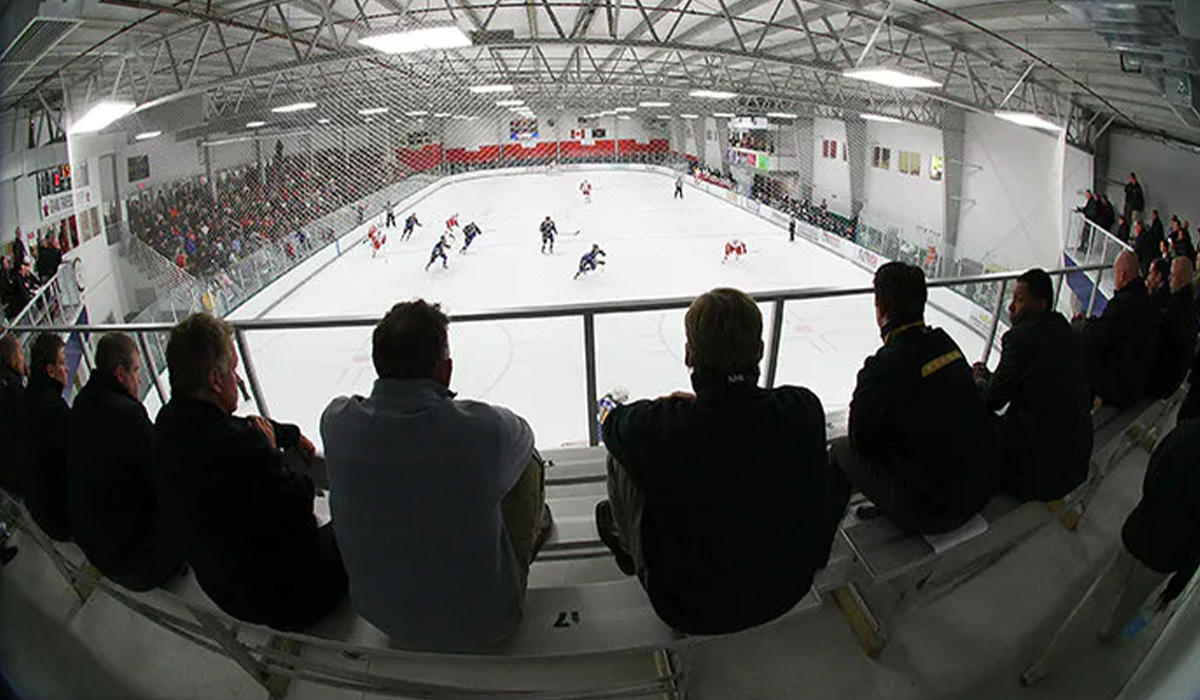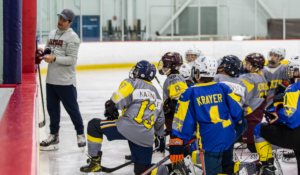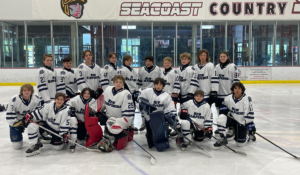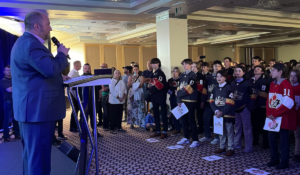Who are they, what do they do and do you need one?
What exactly is a family advisor?
“Highly debated.”
That was Chad McDonald’s answer when he was asked to describe his role as a family advisor.
He’s right, of course. Helping a youth hockey player and their family navigate the complexities of the sport is no easy task. For less than one percent of players, it’s a straightforward path right to where they always wanted to be. For everybody else, decisions have to be made along the way. Sometimes, a player may benefit from having an expert in their corner promoting and lobbying for them.
“What’s right for one player is not right for all,” said McDonald. “One of the first things I ask parents is, ‘what are you looking for in an advisor?’ A lot of parents, I hate to say it, but they think their kid is so good that they don’t need somebody to help mentor them. That they don’t need somebody to have for education or anything like that. They believe, deep down, that they just need somebody to push their kid on and get them a spot. That’s not necessarily incorrect, but it’s not necessarily correct, either. It’s debatable and not a one-size-fits-all.”
McDonald founded the True Advising Group; an affiliate of the Puck Agency. His team has consulted with dozens of youth hockey players that have gone on to play high-level junior and college hockey.
Hockey Advisors and the Letter of the Law
Where the definition of an advisor matters most — the NCAA rulebook — it’s still somewhat vague. In North America, there are two main paths a hockey player can take; major junior in Canada or college hockey in the United States. With the latter, understanding what is acceptable and what is not for an agent and/or an advisor is crucial.
McDonald points to two bylaws in the NCAA rulebook that are specific to hockey, and specific to the topic at hand. Rule 12.3.1.1 is an exception for hockey and baseball. They are the two major sports that feature drafts involving student-athletes graduating from high school. They both allow for an agent to represent a player in the draft process. Rule 12.3.3.1, meanwhile, allows for a “scouting service or agent” to send information to NCAA programs to lobby for a particular player, so long as the payment between the player and agent/advisor/service has nothing to do with whether the player receives a spot at said NCAA program.
Right from the Rule Book
12.3.1.1 Exception — Baseball and Men’s Ice Hockey — Prior to Full-Time Collegiate Enrollment. [A] In baseball and men’s ice hockey, prior to full-time collegiate enrollment, an individual who is drafted by a professional baseball or men’s ice hockey team may be represented by an agent or attorney during contract negotiations. The individual may not receive benefits (other than representation) from the agent or attorney and must pay the going rate for the representation. If the individual does not sign a contract with the professional team, the agreement for representation with the agent or attorney must be terminated prior to full-time collegiate enrollment. (Adopted: 1/15/16, Revised: 1/19/18)
12.3.3.1 Talent Evaluation Services and Agents. [A] A prospective student-athlete may allow a scouting service or agent to distribute personal information (e.g., high school academic and athletics records, physical statistics) to member institutions without jeopardizing athletics eligibility, provided the fee paid to such an agent is not based on placing the prospective student-athlete in a collegiate institution as a recipient of institutional financial aid.
There are two other rules most important for the hockey community. First is 12.3.1.3, which states, “an individual shall be ineligible… if the individual enters into an oral or written agreement with an agent for representation in future professional sports negotiations that are to take place after the individual has completed eligibility in that sport.” The second is 12.1.3.1.4 which says that agents/advisors cannot give gifts or benefits to players. That means those advisors/agents who offer help with equipment deals to lure you in as a client are toeing a fine line, no matter how tempting it is when you see that $350 price tag on a new stick.
Those are the rules a player should follow if they wish to maintain their college hockey eligibility. From there, well, that’s where it’s up to the player and family on what they need from an advisor. Additionally, it’s what an advisor can offer in terms of helping the player both on and off the ice. For some, it can be consistent phone calls to discuss various topics relating to the player’s development and well-being. For others, it can be leveraging connections to help a player advance to higher levels of play.
What makes a good Youth Hockey Advisor
For McDonald, his experience as a college and professional athlete provides valuable knowledge of the hockey landscape. Also, his law degree from Michigan State provides the education necessary to guide the next generation of youth hockey players.
“I feel like the one thing I offer up as compared to others is just my experience and understanding the landscape,” he said. “To put it lightly, a lot of the guys I’m competing with for players are either guys who coached when I was playing or guys who were advisors when I was playing, who have either helped a friend or somebody I know. I feel like I have a pretty good knowledge base of what the advisor role is and when you pair that with my education and my experience playing at a somewhat elite level, that’s where I would say I offer up things that others don’t.”
McDonald said most players who could benefit from having a family advisor will be approached. There’s no need for a Google search.
“I am of the opinion that I approach the family,” said McDonald. “If I’m interested in the kid, I’m going to find the family. I always tell kids that if you want to play, you have to make it so obvious that if an 8-year-old’s parents with no knowledge of hockey were watching the same game a USHL scout or college coach was watching, they and the scout/coach should both be able to say ‘wow, he is really good!’ That’s how obvious it should be, and if it is, then I’ll approach you.”
When — and how — to connect with an Advisor
Another highly debated topic in the industry. Players and families continue to get approached at younger and younger ages every year.
“Prior to the USHL Draft at the 15s year — which only 150 kids either get drafted or tendered in — what can you do for a kid?,” McDonald said. “I really struggle in this business when I hear of kids who are 12 years old but have advisors, because truly, at that age, what are you advising them on?
“I’m not a parent, but I can’t imagine that my parents would have wanted somebody in my ear at that age. But, part of the issue with hockey is the journey is incredibly confusing and not like other sports. So, a lot of families who get approached with their kids at these young ages almost feel it is necessary to have an advisor because of how crazy the hockey world is. Not to mention, you also have those families who see it as a ‘status’ thing, as well.”
So, what if time comes and goes and you do not have an advisor? McDonald believes that an advisor will identifies those top players at the younger ages. Then, at 16, 17, 18 years old, it may make sense at that time to reach out to an advisor.
Advisors to avoid in Youth Hockey
Born in 1993, McDonald played forward while growing up in Michigan. He estimates that during his playing days, about five percent of players had family advisors and 95 percent didn’t.
“It’s completely flip-flopped now,” he said. “I would argue that there’s 95 percent of people who have [an advisor] and five percent who don’t. My feeling on that is that it’s hard because it’s a business for some, but I think the rule of thumb for families going through the process is that you have to ask yourself, what do you want in an advisor? Are you wanting somebody who is going to help ultimately try to place you in junior hockey and make your dreams of Division 1 college hockey come true? Or are you looking for somebody for the, ‘hey I got this email, what should I do?’ Because if you’re looking for somebody to place you, you need to find somebody who likes your game and believes you have talent.
“I couldn’t imagine helping a kid who I looked at and thought, this kid has no hope in playing college hockey but I’m going to take him on as a client anyway because that’s how I do business. I think that’s completely wrong. For me, if your kid is aspiring to play college hockey, you need to wait until there’s somebody who approaches you and says, your son is good, I really like his game, I think he could do this. Even then I would be suspect, and I would ask questions.”
Families must find an advisor who is in it for the right reasons. However, avoiding the ones looking for a paycheck off an unsuspecting family is no easy task.
“The one thing I would like to clear up is that not all advisors are the same,” he said. “I think there are advisors out there who truthfully do this because they love the game and they want to be involved. And, I truthfully think there are advisors out there who do it because they don’t have any means to make money anywhere else or they just choose not to and this is how they want to make their living. Not saying either is right or wrong, but you have to sort through that. That’s on the parent. Do your homework. You don’t just pick up the phone and take the first offer when somebody calls you for something unrelated to hockey. So why do that if an advisor calls? Do your due diligence.”
Parents can impact Advisors, for Better and for Worse
Remember, scouts are watching and evaluating parents throughout the process too. McDonald breaks it down into typically four different relationships. First, with the player. Then, with the program the player lands at. And also, both parents involved in the process.
“Parents can ruin things, one hundred percent,” said McDonald. “When you’re helping young hockey players, there are multiple parties [involved]… One of my biggest struggles is when I meet a family and get the vibe that the parents want it more than their kids. So, yes, parents, you can ruin it for your kid. You can. Don’t ruin it for your kid. Let them live their dream, and you support them. This can’t be your dream.”
Looking for more content like this about youth hockey? Be sure to follow WHH on Facebook, Instagram, Twitter, TikTok, Discord and YouTube!








